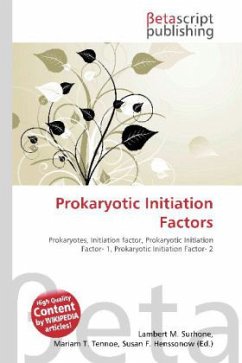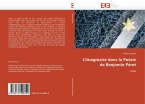High Quality Content by WIKIPEDIA articles! Prokaryotes require the use of three initiation factors: IF1, IF2, and IF3, for translation.IF1 associates with the 30S ribosomal subunit in the A site and prevents an aminoacyl-tRNA from entering. It modulates IF2 binding to the ribosome by increasing its affinity. It may also prevent the 50S subunit from binding, stopping the formation of the 70S subunit. It also contains a ?-domain fold common for nucleic acid binding proteins. IF2 binds to an initiator tRNA and controls the entry of that tRNA into the ribosome. IF2, bound to GTP, binds to the 30S P site. After associating with the 30S subunit, fMet-tRNAf binds to the IF2 then IF2 transfers the tRNA into the partial P site. When the 50S subunit joins, it hydrolyzes GTP to GMP and PPi, causing a conformational change in the IF2 that causes IF2 to release and allow the 70S subunit to form.
Bitte wählen Sie Ihr Anliegen aus.
Rechnungen
Retourenschein anfordern
Bestellstatus
Storno








